To analyze a jaw crusher machine, a systematic evaluation of its structure, working principle, performance, and practical applications is essential. Below is a comprehensive analysis framework covering key aspects, supported by technical details and practical insights:
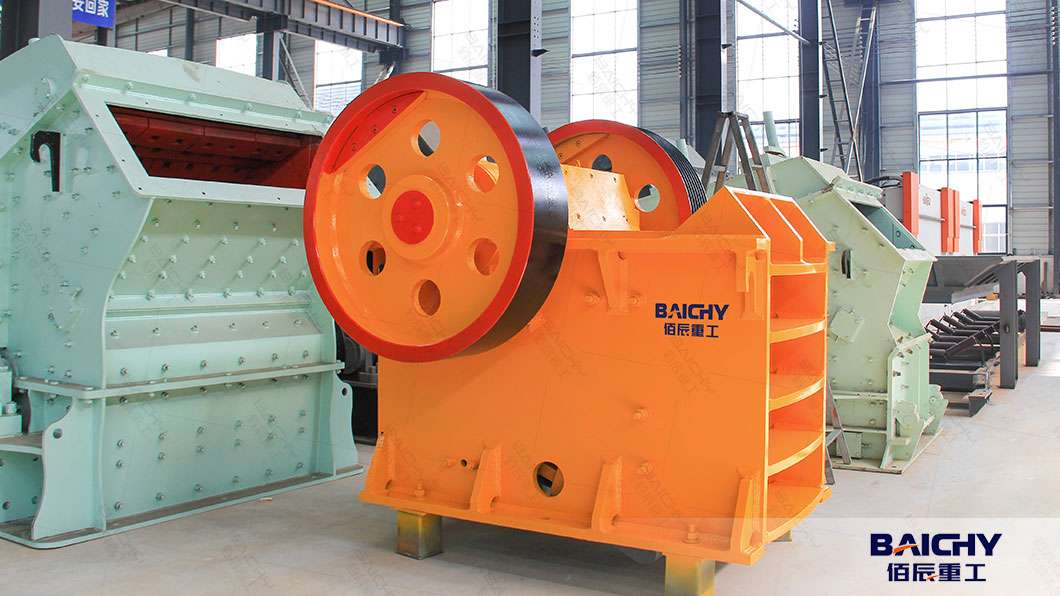
1. Structural Analysis: Core Components and Design
The jaw crusher’s efficiency relies on its mechanical design. Key structural elements include:
-Jaw Plates (Fixed & Moving Jaw):
-Material: Typically made of manganese steel or high - chromium alloys for wear resistance.
-Tooth Design: Jagged teeth on the plates enhance crushing efficiency by increasing friction and shear force.
-Eccentric Shaft: Drives the moving jaw’s reciprocating motion. Its rotation speed and eccentricity determine the crushing stroke.
-Toggle Plate (Pitman Arm): Transmits force from the eccentric shaft to the moving jaw, controlling the crushing stroke and adjusting the discharge opening.
-Frame: Constructed from cast iron or welded steel to withstand high impact loads. Reinforcements at stress points (e.g., feed inlet, discharge outlet) prevent deformation.
-Adjustment Mechanism: Allows modification of the discharge opening size (e.g., wedge - type or shim - type adjusters) to control product particle size.
2. Working Principle: Crushing Mechanism
The jaw crusher operates via acompression - based crushing process:
1.Feeding Stage: Materials enter the hopper and fall between the fixed and moving jaws.
2.Crushing Stage: The eccentric shaft drives the moving jaw to swing toward the fixed jaw, compressing the material until it breaks.
3.Discharge Stage: As the moving jaw retreats, crushed materials fall through the discharge opening. The cycle repeats continuously.
-Crushing Ratio: Typically 3:1 to 10:1, depending on the jaw design (e.g., deep - cavity jaws enhance the ratio for coarse crushing).
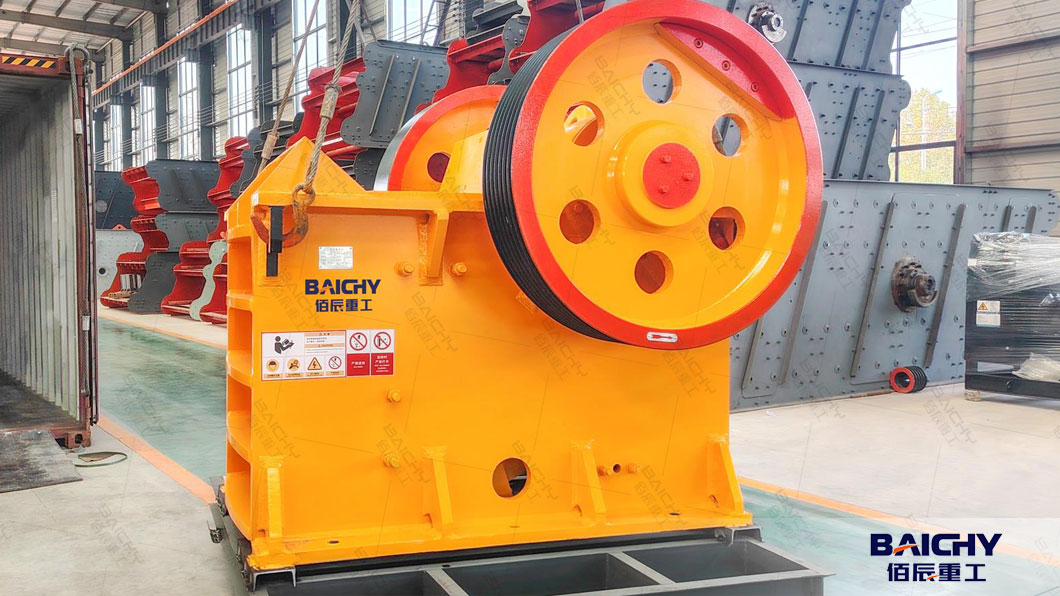
3. Performance Parameters: Key Metrics
Evaluate these indicators to gauge efficiency and suitability:
-Processing Capacity (t/h): Dependent on:
- Feeding size (max. input particle diameter).
- Discharge opening width (smaller openings reduce capacity but yield finer products).
- Material properties (hardness, density, moisture content).
-Power Consumption: Related to the crusher’s size and motor power (e.g., a PE 600×900 jaw crusher typically uses a 55 - 75 kW motor).
-Energy Efficiency: Measured by the specific energy consumption (kWh/ton) to crush materials.
-Noise & Vibration: Critical for environmental compliance; modern designs incorporate sound - dampening materials and vibration isolators.
4. Material Adaptability: Suitability for Different Materials
Jaw crushers excel in processinghard and abrasive materials (e.g., granite, basalt, quartz) but can also handle medium - hard rocks (e.g., limestone, dolomite). Consider:
-Hardness (Mohs Scale): Optimal for materials with a Mohs hardness ≤7. For softer materials, impact crushers may be more efficient.
-Moisture Content: Excessive moisture (e.g., >10%) can cause material adhesion to jaw plates, reducing efficiency.
-Feed Size Distribution: Uniform feeding minimizes wear on the jaw plates. Over - sized particles can cause blockages.
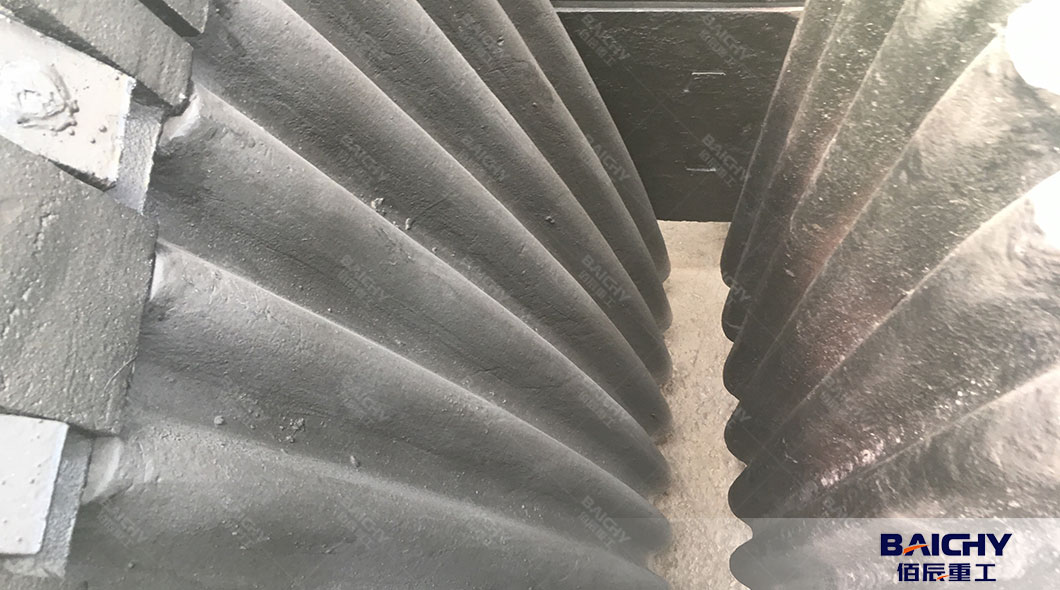
5. Maintenance and Longevity: Operational Tips
-Regular Inspections: Check jaw plate wear, bearing condition, and bolt tightness weekly.
-Lubrication: Maintain proper grease levels in bearings (e.g., lithium - based grease at 40 - 60°C operating temperature).
-Jaw Plate Replacement: Rotate or replace jaw plates when wear exceeds 30% to maintain crushing efficiency.
-Belt Tension: Adjust drive belts to prevent slippage, which reduces power transmission.
6.Selection Consideration)
When choosing a jaw crusher, factor in:
-Production Requirements: Match the crusher’s capacity (e.g., 50 - 500 t/h) to your output needs.
-Material Properties: Hard materials require heavy - duty jaw crushers (e.g., C series Jaw Crusher), while medium - hard materials may suit lighter models (e.g., PE, PEX series for fine crushing).
-Mobility Needs: Fixed jaw crushers are cost - effective for permanent plants, while mobile jaw crushing stations (mounted on tires or crawlers) are ideal for on - site processing (e.g., construction waste recycling).
-Manufacturer Expertise: Choose reputable brands (e.g., Sandvik, Telsmith, domestic manufacturers like Baichy Machinery in Zhengzhou Henan - based firms) for quality and after - sales support.
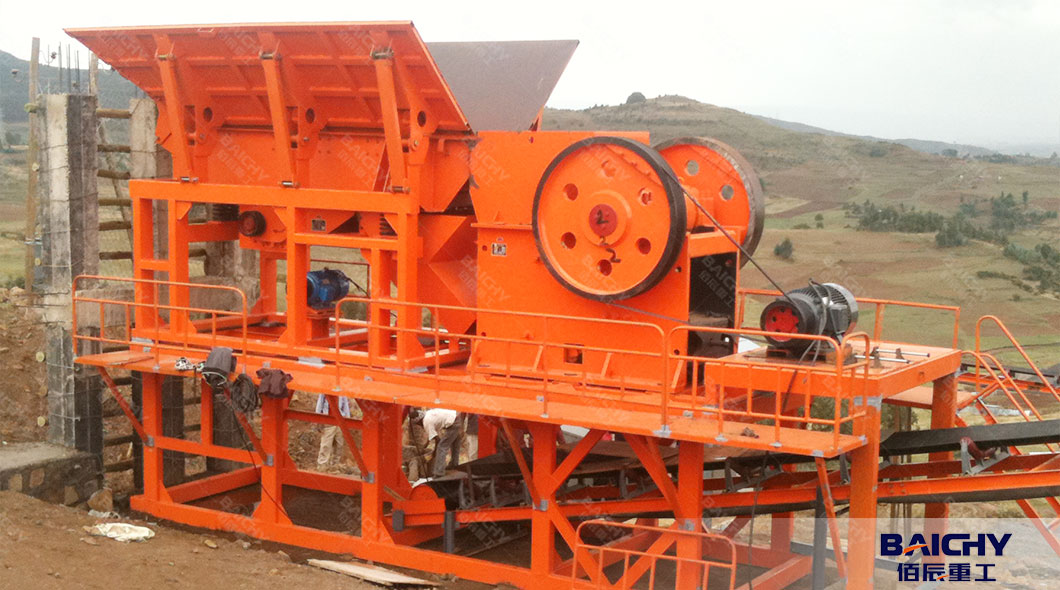
7. Environmental and Safety Considerations
-Dust Control: Install dust collectors or water spray systems to comply with environmental regulations.
-Safety Guards: Ensure emergency stop buttons, protective covers for moving parts, and lockout/tagout procedures during maintenance.
Conclusion
Analyzing a jaw crusher requires a holistic approach, integrating structural mechanics, performance data, and practical operation. By evaluating its design, crushing efficiency, material compatibility, and maintenance needs, users can optimize productivity, reduce downtime, and make informed decisions for their crushing applications—whether in mining, construction, or aggregate production.
Henan Baichy Machinery Equipment Co., Ltd. is a mining machinery manufacturer integrating R&D, production and sales. Stone crusher is one of its core production equipment. It has mature technology and processes, complete models and configurations, and technical engineers can tailor production line configuration plans for you. If you are interested in the stone crusher, please click on the online consultation to get solution and price now. Baichy Machinery is dedicated to serving you 24 hours a day!








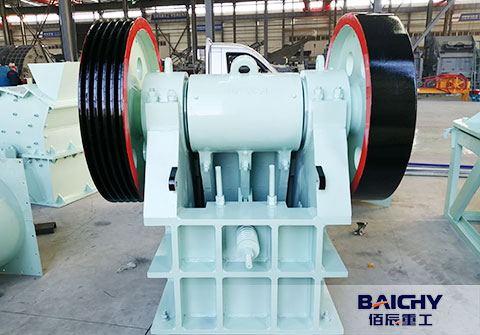
 2026-01-06
2026-01-06
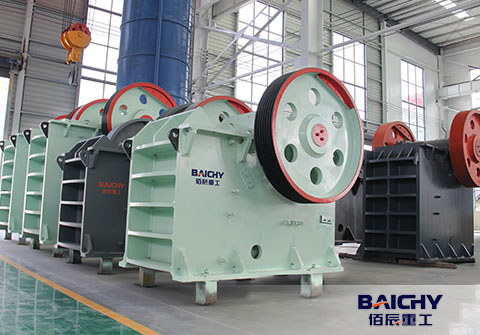
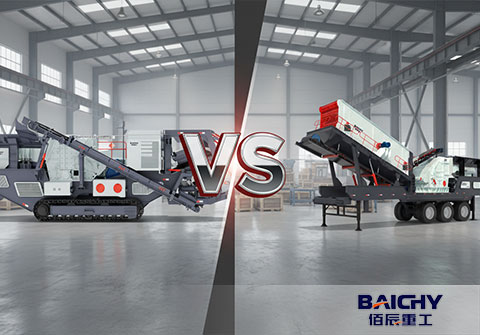
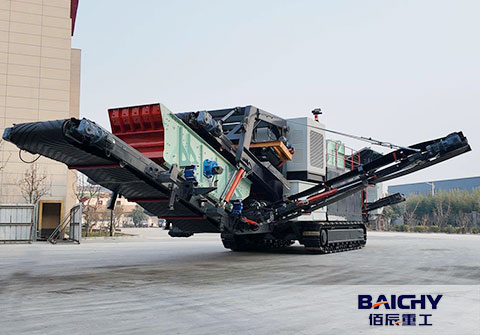
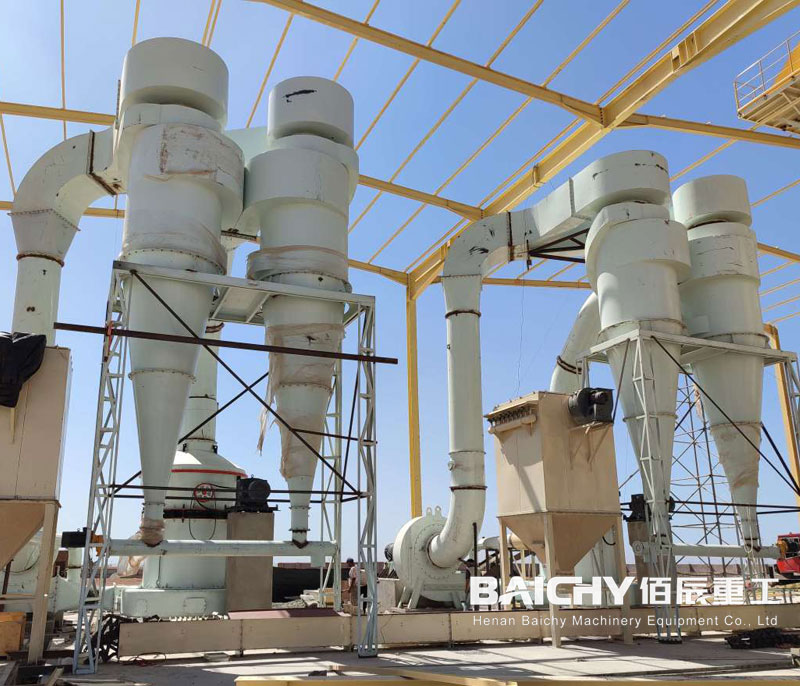
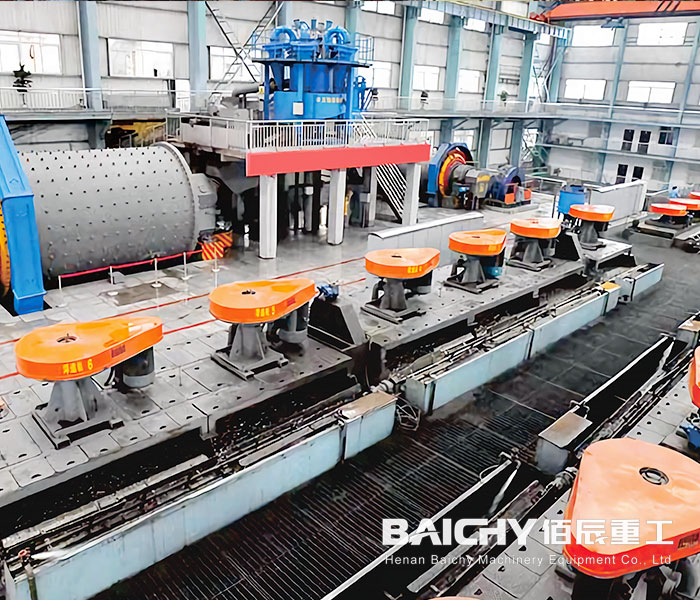
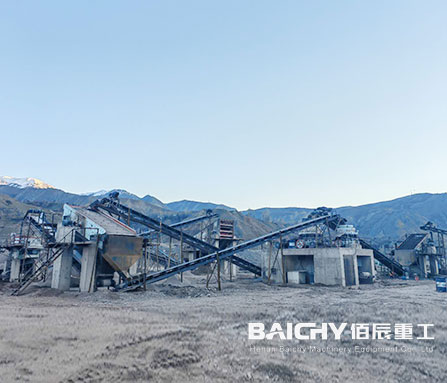
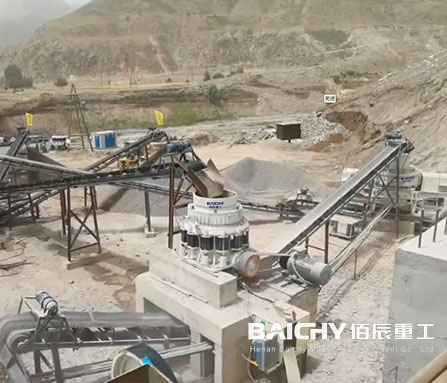














 86-15093113821
86-15093113821
 86-15093113821
86-15093113821

